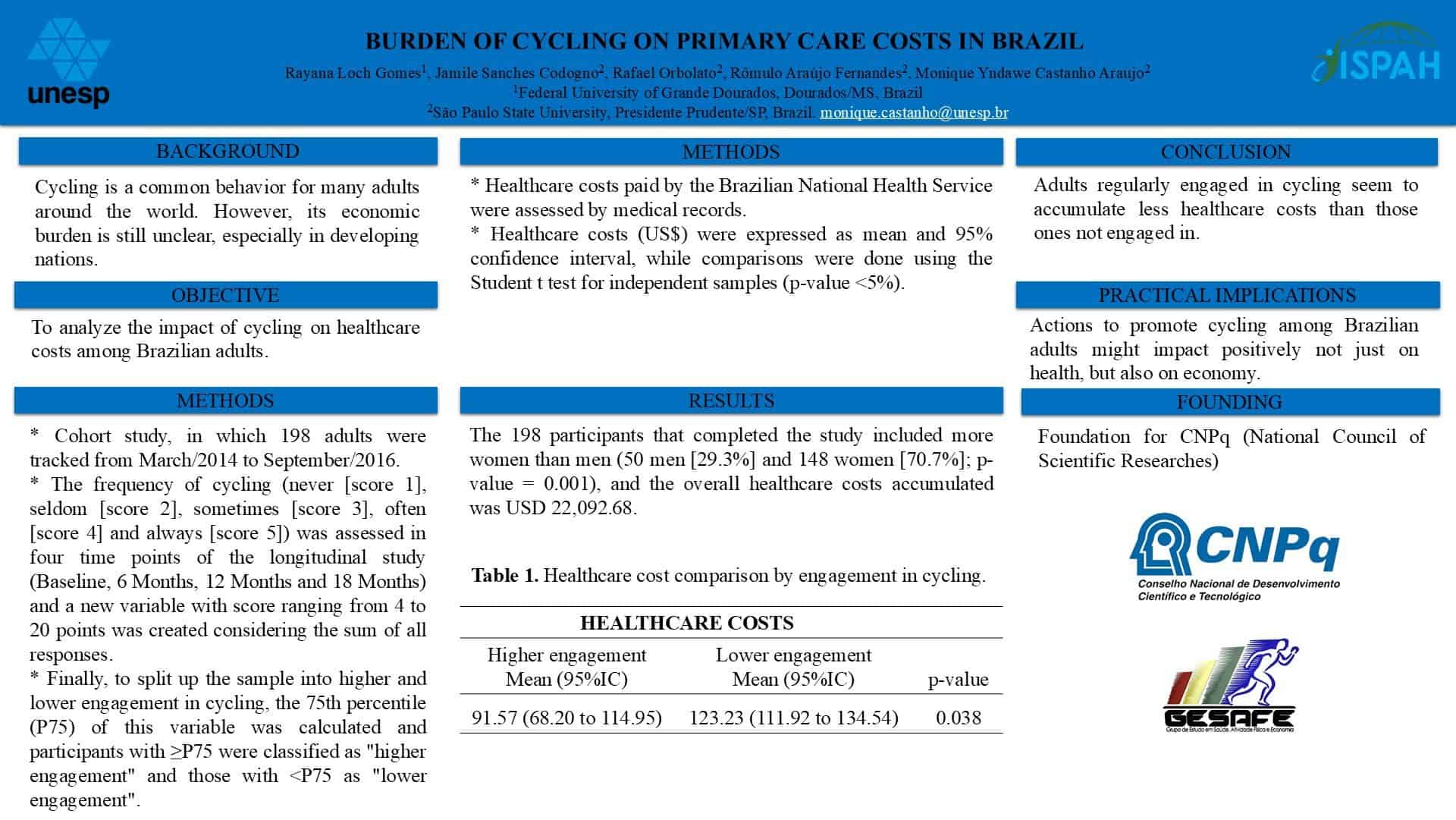
Burden of cycling on primary care costs in Brazil
Abstract Overview
Background: Cycling is a common behavior for many adults around the world. However, its economic burden still unclear, especially in developing nations.
Purpose: To analyze the impact of cycling on healthcare costs among Brazilian adults.
Methods: Cohort study, in which 198 adults were tracked from March/2014 to September/2016. Cycling was assessed through face-to-face interview using Baecke questionnaire. The frequency of cycling (never [score 1], seldom [score 2], sometimes [score 3], often [score 4] and always [score 5]) was assessed in four time points of the longitudinal study (Baseline, 6 Months, 12 Months and 18 Months) and a new variable with score ranging from 4 to 20 points was created considering the sum of all responses. Finally, to split up the sample into higher and lower engagement in cycling, the 75th percentile (P75) of this variable was calculated and participants with ≥P75 were classified as “higher engagement” and those with <P75 as "lower engagement". Healthcare costs paid by the Brazilian National Health Service were assessed by medical records. Healthcare costs (US$) were expressed as mean and 95% confidence interval, while comparisons were done using the Student t test for independent samples (p-value <5%).
Results: Participants with higher engagement in cycling (US$ 91.57 [95%CI: 68.20 to 114.95]) accumulated lower health care costs (p-value= 0.038) than participants with lower engagement in cycling (US$ 123.23 [95%CI: 111.92 to 134.54]).
Conclusions: Adults regularly engaged in cycling seem to accumulate less healthcare costs than those ones not engaged in.
Practical implications: Actions to promote cycling among Brazilian adults might impact positively not just health and environment, but also economy.
Funding: CNPq.

Additional Authors
Name: Jamile Codogno
Affiliation: São Paulo State University (UNESP)
Presenting Author: no
Name: Rafael Orbolato
Affiliation: São Paulo State University (UNESP)
Presenting Author: no
Name: Romulo Fernandes
Affiliation: São Paulo State University (UNESP)
Presenting Author: no
Name: Monique Araujo
Affiliation: São Paulo State University (UNESP)
Presenting Author: yes
